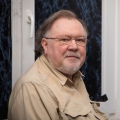Scientific Centers and Labs
Immanuel Kant Baltic Federal University is a federal university and apart from educational goals the University carries out a work related to modern, perspective scientific researches in 49 research spheres.
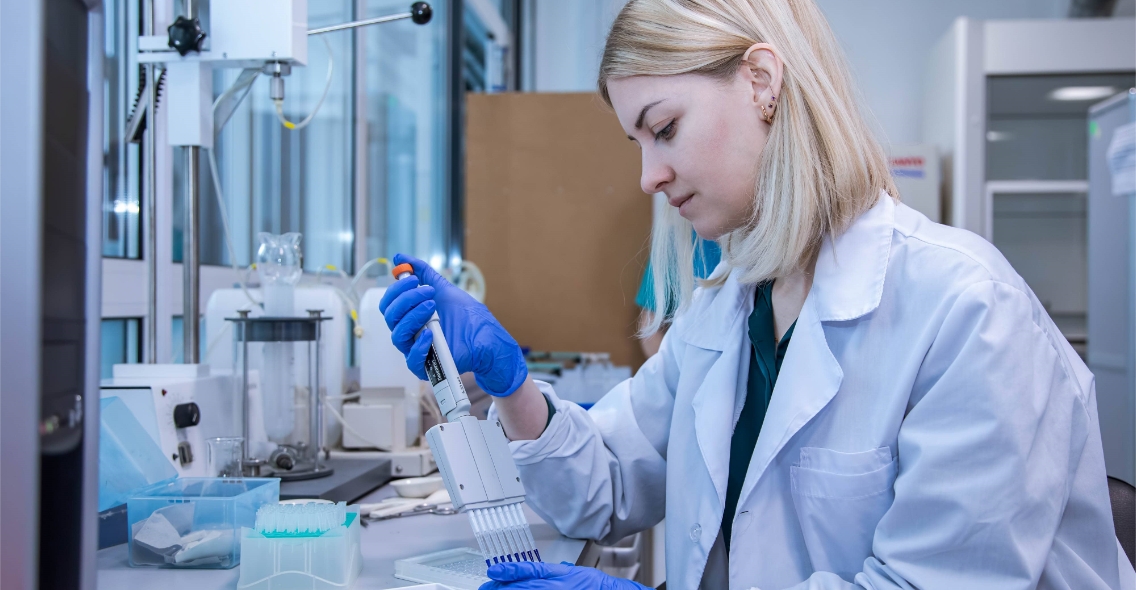
There are the most innovative and cutting-edge projects in science and technology in the Russian Federation (nano-systems industry, information and telecommunication systems, life-related sciences, rational environment usage, transport and space systems).
49
research directions
38
scientific divisions
10
Institutes
1. Research and Education Center “Functional Nanomaterials”

The Research Center has several ongoing projects:
1) To produce nano-technological materials for R&D in material science;
2) To develop new materials for various industries (construction, metallurgy, pharmacy);
The Research and Education Center “Functional Nanomaterials” has to Research Divisions:
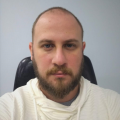
The HVEE-2500 Accelerator Based on Van de Graaff Generator is the heart of the Division. The device constructed by the IKBFU engineers and scientists is designed to disperse all types of small particles: from protons to heavy metals ions. Ion implantation by alloying samples allows creating new types of semiconductor structures and changing some surface properties of metal products: hardness, corrosion resistance, durability, etc. Basically the device is similar to the world-famous Hadron Collider but much smaller.
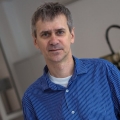
The laboratory conducts research in the following fields: heavy fermions, rare earth magnetism, intermediate valency, neutron spectroscopy, magnetic and lattice excitations in solids; magnetic properties of systems with a singlet ground state; effects of a crystalline electric field, etc.
2. Laboratory of novel magnate materials
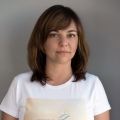
The Laboratory is focused on development of Smart-materials (based on ferromagnets or electo-magnetism using) for biomedical usage and sensory. The scientists of the Laboratory annually patent new devices, publish about 25 articles indexed in the world-wide scientific databases. The laboratory’s projects are financed by the Russian foundation for Science, the Ministry of Science of the Russian Federation, by the Russian Foundation for Basic Research and by the grant of the Russian President.
3. Laboratory of Fundamental and Applied Materials Science

The Laboratory projects are focused around the following scientific tasks:
Researching additive technology materials, developing approaches to new materials’ creation;
Mechanical characteristics of structural materials research: increasing the lifespan cycle, damage and fatigue strength of materials under various loading conditions;
High resolution x-ray computed tomography, materials research using non-destructive testing;
Computer simulation of technological processes for the synthesis and sintering of composite materials;
Mechanical activation and sintering of powder materials, low temperature sintering;
Standardized and universal microhardness measurements of materials.
4. Laboratory of Magnetic Resonance methods for the study of matter

The main goal of the Laboratory
The development of magnetic resonance methods and signal processing methods to study the properties of condensed matter.
International Research Center “Coherent X-ray optics for MegaScience class plants”

Main goals of the Center research:
Coherent optics and coherent methods for new sources
New materials for x-ray optics
Metrology Optics
Research and Education Center “Fundamental and applied photonics. Nanophotonics”
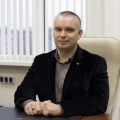
Goals
Conducting scientific research in the field of photoprocesses related to the interaction of laser radiation with matter, molecular spectroscopy and luminescence, as well as nanoplasmonics; development of methods for producing metal nanoparticles (silver, gold, copper, etc.) by electrochemical methods and femtosecond laser ablation methods in liquid and vacuum with the control of the shape and size of nanoparticles by photocorrelation spectroscopy.
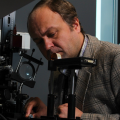
Goals:
Development of digital holographic interferometry methods for vibration analysis and dynamic processes.
The laboratory team of coherent-optical measuring systems consists of specialists in the field of coherent-optical measuring systems, physical methods for the study of micro- and nanostructures, mathematical modeling.

Goals:
The main activity of the Laboratory of Optical Radiation is aimed at the development and implementation of new medical equipment that will provide patients with autoimmune skin diseases and problems of long non-healing wounds with access to cheap, safe and non-drug methods of treatment
Center for Genomic research
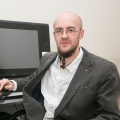
Goals: to highlight the genetic code of mammalian mitochondria
Conditionally, this is called "biohacking" or hacking of the genetic code in order to modify the properties of a living organism. In contrast to the program code, the genetic code has a material nature (chemical substance) and exists due to many biochemical reactions. Today the genetic code of mammalian mitochondria remains impregnable, probably due to the colossal importance of mitochondria in the functioning of the cell, and as a result directed evolution of the code towards blocking the pathways of interference in its structure. Nevertheless, the development of approaches for transcoding the genetic apparatus of mitochondria opens up unprecedented opportunities both in testing hypotheses based on bioinformatics analysis and in developing methods for gene therapy of hereditary diseases of mitochondrial etiology.
Basic Laboratory of Immunology and Cellular Biotechnology

Research in the following spheres: molecular-genetic mechanisms of reactions of cellular systems in normal and pathological conditions for theoretical and methodological substantiation and application of the principles and ways of prognosis, diagnosis and correction of socially significant diseases.
The goal of the Laboratory of Immunology and Cellular Biotechnology: research aimed at identifying the cellular-molecular and genetic mechanisms of the formation of socially significant diseases.
Medical Biotechnology Center
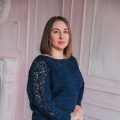
Research goals: Design, development and implementation of innovative immunotherapeutic technologies in public health. Study of cellular and molecular mechanisms of immune memory generation.
Laboratory of Microbiology and Biotechnology

Laboratory of Microbiology and Biotechnology is a group of professionals conducting research in various spheres of microbiology and biotechnology.
The main goal of the Laboratory is to conduct fundamental and applied research coordinating with prior scientific disciplines.
Laboratory of immunohistochemical and pathoanatomical diagnostics

Goals:
Conducting research in the field of pathological anatomy and molecular pathology using various diagnostic laboratory tests to study theoretical aspects and improve methods for the practical diagnosis of diseases of the human reproductive system, pre-tumor and neoplastic processes; self-supporting histological, immunohistochemical, cytological, FISH studies for practical medical diagnosis of diseases in patients of the Kaliningrad region.
Scientific Panel on Molecular Biophysics and bio-nano-technologies

Goals:
Identification of mechanisms of switching the functional activity of the Dps protein at various stages of oligomerization, areas of its cellular localization, and factors affecting this process
search for ligands of various nature that affect the process of protein oligomerization
applied studies of the structure and composition of the inorganic core Dps, the stages of its formation and the search for mechanisms for controlling this process to solve the creation of molecular reactors based on the Dps protein
Center for Clinical research
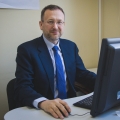
The Center was created in 2017 on the basis of the IKBFU Diagnostic Center. The Center considers its mission to expand access for patients of the Kaliningrad region to innovative pharmacotherapy, as well as to create conditions for more active involvement of IKBFU employees and doctors in the region in the process of creating new drugs.
Applied bioecology

Goal: By using modern methods of bioecology, aerospace, and geoinformation systems, provide various ministries and departments of the Kaliningrad region with up-to-date information on the state of natural environments for making scientifically based management decisions on the development of territories and water areas.
Development of human-machine interaction technologies

Goals:
The research is aimed at finding effective ways of decrypting brain signals for controlling various types of devices. This will improve technical characteristics make the devices cheaper. These include changes related to the improvement and growth of technical parameters, computing power, increased throughput, etc.
The study of neuron-glial interactions and synaptic homeostasis

Goals
The main goal of the research conducted by our team is to gain knowledge on brain physiology.
Molecular Neurobiology and Neurooncology
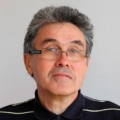
Goals
Introduction of modern brain research methods at the Institute of Living Systems, development of new approaches to the treatment of glioblastoma based on a combination of molecular biology and optics
Synthetic Biology
Laboratory of three-dimensional seismic exploration and inverse problems of wave processes
Laboratory of geological modeling
Laboratory of monitoring
Geodata Mining Laboratory
Laboratory of Communication Technologies, Monitoring Systems and Telemetry
Microseismic Monitoring Laboratory
Mathematical modeling of plasma physics problems
Center for Applied Radiophysical Studies of the Atmosphere and Ionosphere
Mathematical methods of information security

Laboratory of Astrophysics and Cosmology
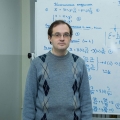
The Laboratory of Astrophysics and Cosmology is engaged in theoretical studies of cosmological models of dark energy, relativistic compact objects and models of modified gravity.
Laboratory "Theory of analytical and numerical description of nonlinear processes"
Sociological Laboratory of Risk Analysis, Modeling and Risk Forecasting
Center for Social and Humanitarian Informatics
Scientific seminar “Cognition, Culture, Communication, Translation”
Scientific seminar "Modi of social semiotics"
Academia Kantiana
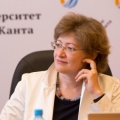
The Academia Kantiana, a research subdivision of the IKBFU Institute for the Humanities, aims at systematic research of the interaction between Russian and Western philosophical traditions. Kant’s ideas and their reception in Russia, the history of Russian neo-Kantianism and its influence on European thought, the Enlightenment project and its revival in the XXI century are the core themes of the Academy’s research program. The Academy’s projects are financed by the the Ministry of Science and and Higher Education of the Russian Federation, by the Russian Foundation for Basic Research and by the grant of the President of the Russian Federation.
